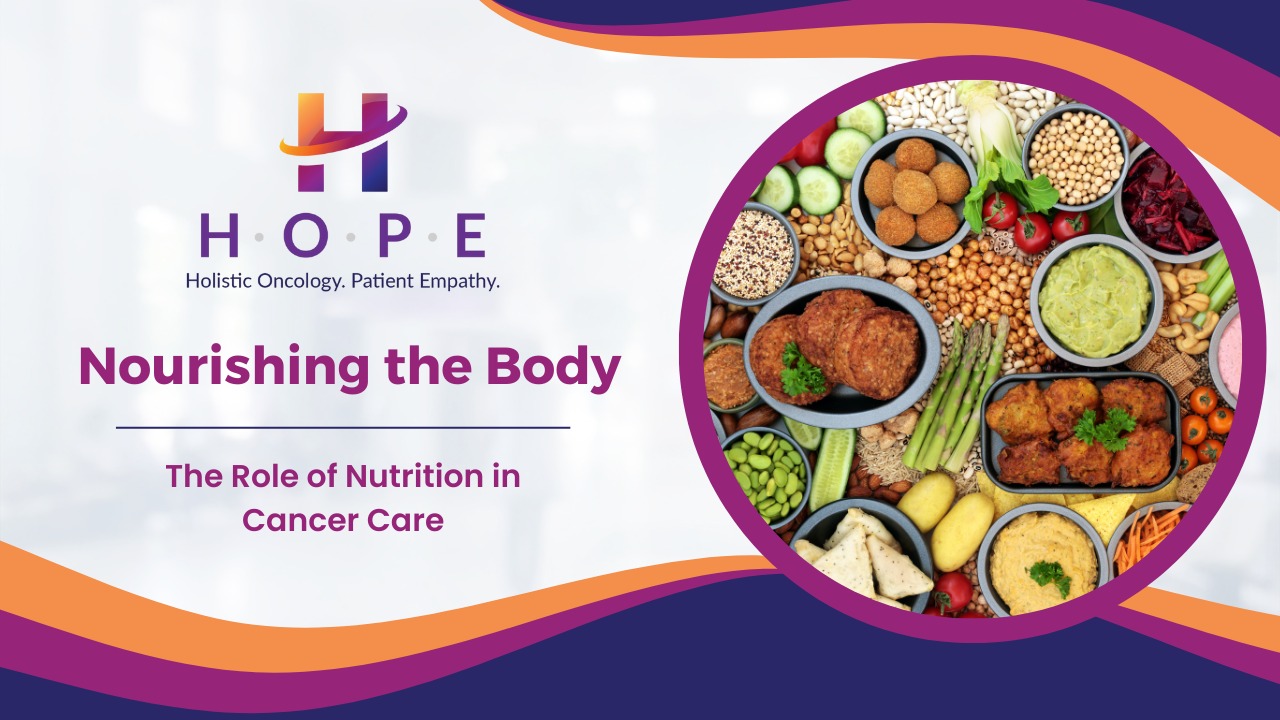Nourishing the Body: The Role of Nutrition in Cancer Care
Cancer, a formidable adversary that impacts millions of lives worldwide, necessitates a multifaceted approach to treatment and care. While medical interventions play a pivotal role, the significance of nutrition in the realm of cancer care should not be underestimated. Proper nutrition is not only essential for maintaining overall health but can also influence the effectiveness of treatments, enhance the quality of life for individuals undergoing cancer therapy, and contribute to the recovery process.
Understanding the Impact of Cancer on Nutrition
Cancer and its treatments can exert a profound impact on an individual’s nutritional status. The disease itself, as well as therapies such as chemotherapy and radiation, may lead to side effects that affect appetite, digestion, and the body’s ability to absorb nutrients. Common side effects include nausea, vomiting, changes in taste and smell, fatigue, and weight loss. Consequently, addressing nutritional needs becomes crucial to mitigate these effects and support the body’s ability to cope with the challenges posed by cancer.
Tailoring Nutrition to Individual Needs
One size does not fit all when it comes to cancer nutrition. Each individual’s nutritional requirements are unique, influenced by factors such as the type of cancer, stage of the disease, treatment modalities, and the overall health of the patient. Therefore, a personalized approach to nutrition is paramount in ensuring that the specific needs of each individual are met.
Key Components of Cancer Nutrition:
- Protein Intake:
Protein is a fundamental building block for the body, aiding in the repair and regeneration of tissues. For individuals undergoing cancer treatment, maintaining an adequate protein intake is crucial to support the body’s healing processes.
- Caloric Requirements:
Cancer and its treatments can often lead to weight loss and malnutrition. Meeting caloric needs becomes essential to prevent further depletion of energy stores. This may involve consuming smaller, more frequent meals to manage appetite fluctuations.
- Hydration:
Staying hydrated is vital for individuals with cancer. Certain treatments, such as chemotherapy, can cause dehydration, making it essential to drink an adequate amount of fluids. However, individual tolerance may vary, and healthcare providers can offer guidance on optimal fluid intake.
- Micronutrients:
Vitamins and minerals play a crucial role in supporting the immune system and overall health. Ensuring an ample supply of micronutrients through a balanced diet or supplements can be beneficial, especially when the body’s natural reserves may be compromised.
- Fiber-Rich Foods:
A diet rich in fiber promotes digestive health and can help manage common treatment-related side effects such as constipation. Fruits, vegetables, and whole grains are excellent sources of dietary fiber.
- Adapting to Taste Changes:
Cancer treatments can alter taste perceptions, leading to aversions or preferences for certain foods. Experimenting with different flavors and textures can help individuals find foods that are palatable and enjoyable.
Nutrition as Supportive Care
Beyond addressing the direct impact of cancer and its treatments on nutritional status, proper nutrition plays a broader role in supportive care. A well-nourished body is better equipped to tolerate treatments, recover from surgery, and resist infections. Additionally, maintaining a healthy weight can positively influence treatment outcomes and contribute to an improved quality of life.
Integrating Nutrition into Cancer Treatment Plans
Effective collaboration between healthcare providers, including oncologists, dietitians, and other members of the healthcare team, is crucial in integrating nutrition into comprehensive cancer care. Regular assessments of nutritional status, ongoing communication about dietary challenges, and adjustments to the nutrition plan as needed ensure a dynamic and responsive approach to individual needs.
The Role of Oncology Dietitians
Oncology dietitians specialize in tailoring nutrition plans for individuals with cancer. Their expertise allows them to navigate the intricacies of cancer-related side effects and treatment-specific nutritional needs. From addressing weight loss concerns to managing taste changes, oncology dietitians provide invaluable support throughout the cancer journey.
Nutrition Throughout the Cancer Journey
Cancer is a dynamic and evolving condition, and nutritional needs may shift throughout the various stages of the disease. From the initial diagnosis to active treatment, into survivorship, and, if necessary, through palliative or end-of-life care, nutrition remains an integral component of holistic cancer care.
Survivorship Nutrition
Survivorship brings its own set of challenges and opportunities. Individuals who have completed cancer treatment may face issues such as managing post-treatment weight, addressing dietary restrictions, and adopting long-term lifestyle changes. Survivorship nutrition focuses on optimizing health and well-being beyond the immediate challenges of active treatment.
Palliative and End-of-Life Nutrition
In cases where curative treatment may not be feasible, palliative and end-of-life nutrition pivots towards enhancing quality of life. It aims to provide comfort, manage symptoms, and support the individual and their loved ones in maintaining meaningful connections through shared meals and nourishment.
Empowering Individuals Through Education
Educating individuals with cancer and their caregivers about the role of nutrition is a key component of empowering them to actively participate in their care. Understanding the connection between nutrition and overall well-being enables individuals to make informed choices, experiment with various dietary approaches, and seek timely guidance from healthcare professionals.
Research and Advancements in Cancer Nutrition
Ongoing research in the field of cancer nutrition continues to unveil new insights and therapeutic strategies. From exploring the impact of specific dietary patterns on cancer prevention to investigating nutritional interventions that may enhance treatment efficacy, the intersection of nutrition and oncology is a dynamic area of study.
Conclusion: Nourishing Hope in the Face of Cancer
As the landscape of cancer care evolves, the role of nutrition takes center stage in fostering a comprehensive and patient-centered approach. Recognizing the unique nutritional needs of individuals with cancer, tailoring interventions to address specific challenges, and integrating nutrition seamlessly into the broader treatment plan contribute to a holistic and supportive care environment.
Empowering individuals with knowledge, leveraging the expertise of healthcare professionals, and embracing the dynamic nature of nutritional requirements throughout the cancer journey collectively pave the way for a nourished body, resilient spirit, and hopeful outlook in the face of cancer’s challenges. In the realm of cancer care, nutrition emerges not only as a vital component but as a beacon of hope, promoting healing, and enhancing the quality of life for those navigating the complexities of cancer.

